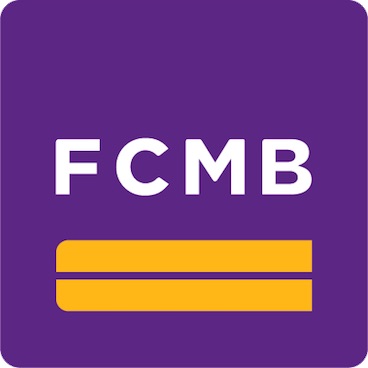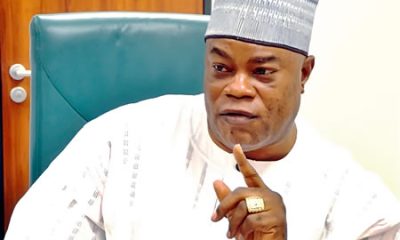COVER
COVID-19: New Law Prescribes Six- month Jail term for no Facemask

By Chika Otuchikere, Abuja
With the rising incidence of COVID -19 deaths and infections in the country, in the wake of the second wave of the pandemic, President Muhammadu Buhari has signed a new law prescribing a six-month jail term for violators of the protocols.
The president signed the regulation which provides a legal framework for the prosecution of any defaulter in Abuja yesterday.
The law stipulates that an offence under these regulations is punishable, on conviction by a fine or a jail term of six months imprisonment or both in accordance with Section 5 of the Quarantine Act.
It further mandates security agencies, includingPersonnel of the Nigeria Police Force, the Nigeria Security and Civil Defence Corps, the Federal Road Safety Corps, the Nigeria Immigration Service, the Federal Airport Authority of Nigeria, and other relevant Local Government, State and Federal Government agencies to ensure the enforcement of the these Regulations.
Prior to the enactment of the regulation, Nigerians had displayed apathy to the adherence of the COVID-19 protocols, including wearing of facemasks, regular washing of hand, use of sanitisers and temperature check as well as social distancing.
At the last count, more Nigerians may have died in the last few months of the second wave of the pandemic than the number that died during the months of the nationwide lockdown in 2020.
The federal government had mulled another nationwide lockdown following the rising daily infections and deaths but has been advised against it given the grave economic of impact of another lockdown.
The full details of the COVID-19 health protection regulation 2021 is presented here:
In the exercise of the powers conferred upon me by Section 4 of the Quarantine Act, Cap. Q2 Laws of the Federation of Nigeria 2010 and all other powers enabling me in that behalf; and in consideration of the urgent need to protect the health and wellbeing of Nigerians in the face of the widespread and rising numbers of COVID-19 cases in Nigeria, I, Muhammadu Buhari, President of the Federal Republic of Nigeria, hereby make the following Regulations. (SeePage7)
Restrictions on Gatherings
1. At all gatherings, a physical distance of at least two metres shall be maintained at all times between persons.
2. Notwithstanding the provision of Regulation 1, no gathering of more than 50 persons shall hold in an enclosed space, except for religious purposes, in which case the gathering shall not exceed 50% capacity of the space.
3. All persons in public gatherings, whether in enclosed or open spaces, shall adhere to the provisions of Part 2 of these Regulations.
4. The provisions of these Regulations may be varied by Guidelines and Protocols as may be issued, from time to time, by the Presidential Task Force (PTF) on Covid-19 on the recommendation of the Nigeria Centre for Disease Control (NCDC).
PART 2
Operations of Public Places
Markets (including open markets), Malls, Supermarkets, Shops, Restaurants, Hotels, Event Centres, Gardens, Leisure Parks, Recreation Centres, Motor Parks, Fitness Centres, etc.
5. No person shall be allowed within the premises of a market, mall, supermarket, shop, restaurants, hotels, event centres, gardens, leisure parks, recreation centres, motor parks, fitness centre or any other similar establishment (hereinafter collectively referred to as “establishments”) except:
a. he is wearing a face covering that covers the nose and mouth;
b. he washes his hands or cleaned the hands using hand sanitiser approved by the National Agency for Food and Drug Administration and Control (NAFDAC); and
c. his body temperature has been checked. Any person found to have a body temperature above 38 degrees Celsius shall be denied entry and advised to immediately seek medical attention.
6. Every establishment occupier shall make provision for regular hand hygiene for any person coming into the premises during opening hours. This includes a handwashing station with soap and running water, or hand sanitiser approved by NAFDAC.
7. Each establishment occupier is responsible for cleaning and disinfecting his premises.
8. It is the responsibility of the occupier of the establishment to:
a. Enforce the proper use of face covering;
b. Make provision for safe hygiene facilities;
c. Enforce provision of temperature checks prior to entry into the establishment;
d. Enforce provisions and use of face covering within the establishment;
e. Ensure that their customers queue up and are attended to serially while complying with physical distancing measures and avoiding overcrowding; and
f. Generally, ensure compliance with the provisions of these Regulations.
9. Occupiers of establishments are liable for any observed non-compliance by any persons within the premises.
Places of Worship
10. All worshippers and users of places of worship shall comply with the provisions of Parts 1 and 2 of these Regulations.
11. Worshippers shall, where and whenever possible, avoid sharing worship items such as mats, bottles, hymnals, etc.
12. It is the responsibility of the person in charge of a place of worship to ensure compliance with the provisions of these Regulations within the worship centre.
Workplace and Schools
13. All persons entering the premises of a workplace or school shall comply with the provisions of Parts 1 and 2 of these Regulations.
14. It is the responsibility of the person in charge of a workplace or a school to ensure compliance with the provisions of these Regulations within the office or school premises.
Banks
15. All employees, customers and visitors of banks shall comply with the provisions of Parts 1 and 2 of these Regulations.
16. All banks shall comply with the guidelines, mode and scope of operations issued by the Central Bank and Federal Ministry of Finance as it relates to the COVID-19 response.
17. All banks shall develop a schedule for regular cleaning of buttons and surfaces of Mantrap Entrance Doors, ATM machines and other commonly used areas.
Public Transportation Vehicles
18. All operators and passengers of public transportation vehicles (hereinafter referred to as “operators”) shall comply with the provisions of Part 2 of these Regulations.
19. Operators shall ensure adequate spacing in between passengers.
20. Operators shall ensure frequent cleaning and disinfection of parts of the vehicle frequently handled by passengers and drivers such as doors and window handles/buttons, steering wheels and dashboards.
21. Operators shall encourage passengers to frequently perform hand hygiene.
22. All operators of trains, ships and planes shall have an occupational health and infectious diseases preparedness plan, in case an employee or traveller becomes unwell in the course of a journey.
23. It is the responsibility of operators to ensure compliance with the provisions of these Regulations in the course of their operations.
Hostels, Boarding Houses and Detention Centres
24. Managers of Hostels, Boarding Houses, Nursing Homes, Correctional Centres, Remand Homes, Holding Cells, Military Detention Facilities, and such centres for care and custody of persons, shall ensure compliance with the provisions of these Regulations.
25. Managers of such facilities shall ensure that suspected cases of Covid-19 are promptly and appropriately separated from others and are reported to medical officers of the State Ministry of Health for necessary action.
PART 3
Mandatory Compliance with Treatment Protocols
26. The health and safety protocols and guidelines are issued by the PTF on Covid-19 on the recommendation of the NCDC and shall be binding on all persons.
27. Persons confirmed to have tested positive to COVID-19 by an NCDC accredited laboratory, may not refuse isolation and or admission to a designated health establishment for management of the disease.
28. All public secondary and tertiary health facilities shall designate a space or holding bay for the initial triage or assessment of suspected persons with COVID-19 in line with the approved protocol for case management.
29. All public secondary and tertiary health facilities shall establish sample collection centres, where test samples from suspected cases can be collected and transmitted to an accredited testing laboratory in the State.
30. Notwithstanding the provision of Regulation 27, where a person confirmed to have tested positive to the COVID-19 is:
a. Asymptomatic or has mild symptoms; and
b. Proves able to make an alternative isolation arrangement that satisfies protocols issued by the NCDC, as certified by a healthcare provider and assessment by a medical professional;
such person may use such alternative arrangements, including supervised “home-based care,” for self-isolation and adhere strictly to the guidelines, until confirmed by the healthcare provider to be no longer at risk of infecting others with the virus.
PART 4
Offences and Penalties
31. Any person who contravenes the provisions of these Regulations commits an offence.
32. Any person who, without reasonable cause, contravenes a direction given under Parts 1 and 2 of these Regulations commits an offence.
33. Any person who, without reasonable cause, obstructs an authorised official from enforcement of these Regulations commits an offence.
34. An offence under these Regulations is punishable, on summary conviction, by a fine or a term of six months imprisonment or both in accordance with Section 5 of the Quarantine Act.
PART 5
Enforcement and Application
35. Personnel of the Nigeria Police Force, the Nigeria Security and Civil Defence Corps, the Federal Road Safety Corps, the Nigeria Immigration Service, the Federal Airport Authority of Nigeria, and other relevant Local Government, State and Federal Government agencies are hereby directed to enforce the provisions of these Regulations.
36. Any officer of the enforcement agencies who fails, neglects, or refuses to enforce the provisions of these Regulations shall be subject to disciplinary action by the disciplinary body of his respective agency.
37. The provisions of these Regulations shall apply throughout the Federal Republic of Nigeria.
38. State Governors may issue Regulations on further steps as may be considered necessary.
PART 6
Interpretation and Citation
39. In these Regulations, unless the context otherwise requires:
a. “Offence” means any act, which may constitute a violation of the provisions of these Regulations.
b. “Enforcement Agency” means any law enforcement or security agency vested with the statutory power to investigate and prosecute any person in respect of any of the applicable offences.
c. “Face covering” means a covering of any type (other than a face shield) which covers, fully, a person’s nose and mouth.
d. “gathering(s)” means an assembly or meeting of people.
e. “occupier” means any person who is in current occupation and control of premises either as an owner or lessee.
f. “Public transportation vehicle” means bicycle, motorcycle, tricycle, car, taxi, limousine, bus, train, ship, plane, or any other vehicle of transportation that carries more than one person at a time.
g. “reasonable cause” includes medical emergency, wherein the person in violation forgot to put on face covering, but complied with the directive to do so upon prompting; a natural disaster, wherein persons need to be evacuated into a public space; etc.
40. These Regulations shall take effect immediately and remain in effect until otherwise determined.
41. All other Protocols and Guidelines issued by the PTF, NCDC, and or State Governments, except as expressly provided, shall remain in force.
42. These Regulations may be cited as the Coronavirus Disease (Covid-19) Health Protection Regulations 2021.
COVER
FG Approves Mandatory Drug Integrity Test for Tertiary Students

By Attah Ede, Makurdi
In a bold move to tackle the growing menace of drug abuse among young people, the Minister of Education, Dr. Tunji Alausa, has approved the implementation of mandatory drug integrity testing for students in Nigeria’s tertiary institutions.This initiative, announced after a strategic meeting with the Chairman of the National Drug Law Enforcement Agency (NDLEA), Brig.
Gen. Buba Marwa (retd), will apply to both new and returning students through compulsory and random testing.The development is part of a comprehensive three-pronged strategy proposed by the NDLEA, which includes curriculum reform to introduce up-to-date drug education in schools, stand-alone drug abuse prevention programs at the secondary level, and a national student drug testing policy.According to NDLEA spokesman, Femi Babafemi, over 40,000 drug offenders have been arrested and more than 5,500 metric tonnes of narcotics seized in the last two years alone.Marwa emphasized the urgent need for this initiative, stating that drug use fuels criminal activities including terrorism, kidnapping, and banditry.“We are fighting for the souls of our children. Without drugs, many criminal activities would not be possible,” Marwa declared.Dr. Alausa acknowledged the devastating effects of drug abuse on academic performance and employability, describing it as a major threat to national development.“When youths get into drugs, they lose interest in education. Even if they attend school, they’re not functional. Their ability to make informed life decisions is diminished, making them unemployable,” Alausa warned.To institutionalize the reforms, the minister announced the establishment of a Substance Use Prevention Unit in the ministry and the formation of an inter-ministerial working group with the NDLEA. He also committed to collaborating with the Universal Basic Education Commission and the Tertiary Education Trust Fund to support the NDLEA Academy in Jos.Meanwhile, in Makurdi, Benue State, a different kind of crisis is unfolding. No fewer than 76 nursing students at the Benue State University (BSU) were forcefully evicted from their hostels on Thursday, following a dispute over increased accommodation fees.The students, who were relocated from the main campus to the dilapidated facilities of the former School of Nursing and Midwifery, said they were asked to pay N30,000 per bed space, double the N15,000 charged at the main hostels.According to them, the eviction came without prior notice, even as the students were in the middle of their first semester exams and preparing for their clinical postings slated for August 11.Many of them, coming from distant states such as Lagos, Kaduna, and Abuja, were left stranded on the streets with their luggage and no alternative accommodation.Acting President of the Benue Schools of Nursing and Midwifery Alumni Association and media aide to the State NANNM Chairman, Mhange Moses, condemned the action as harsh and insensitive.“This is a shameful treatment. These students live in appalling conditions — no water, no electricity, broken toilets. Now they are being thrown out with no place to go. The nursing college is at risk of losing accreditation, and the students’ futures are in jeopardy,” Moses lamented.He appealed to Governor Hyacinth Alia to intervene urgently and provide a safe and conducive learning environment.“Nurses are the custodians of public health. They deserve better. We appreciate the governor’s efforts in upgrading the institution, but he must act now to prevent further damage,” Moses urged.As the federal government ramps up its fight against drug abuse in tertiary institutions, the plight of these nursing students highlights another pressing issue in the education sector—access to basic, dignified living conditions while pursuing academic and professional training.COVER
FCMB Group Records N529.2bn in Half Year Gross Earnings

By Tony Obiechina, Abuja
FCMB Group Plc has announced its financial results for the half-year period ended June 30, 2025, recording gross earnings of N529.2bn, representing a 41.3 percent increase compared to N374.5bn posted in the corresponding period of 2024.In its unaudited financial statements for the period ended March 31, 2025, and filed with the Nigerian Exchange Limited on Tuesday, the growth was primarily driven by a 70.
3 percent surge in interest and discount income, which rose to N458. 4bn from N269.2bn in H1 2024. This strong performance reflects improved yields on earning assets and expansion in the Group’s loan book, which reached N2.38tn as of 30 June 2025.Net interest income climbed to N207.4bn, up 95.3 percent from N106.2bn in the same period last year. Despite this, interest expense rose by 54.1 percent to N251.0bn, compared to N163.0bn in 2024.Net fee and commission income also rose significantly by 51.3 percent to N37.9bn from N25.1bn. This growth was aided by a 30.9 per cent rise in fee and commission income to N47.4bn, even as fee and commission expenses fell by 14.9 per cent to N9.5bn.However, net trading income declined by 29.3 per cent to N22.2bn from N31.4bn, while other gains fell sharply to N696.3m from N37.1bn, reflecting lower revaluation and disposal gains on financial instruments.Operating expenses increased across the board. Personnel expenses rose 34.4 percent to N48.3bn, and depreciation and amortisation grew 24.8 per cent to N8.1bn, while general and administrative expenses jumped 59.4 per cent to N57.2bn. Other operating expenses rose 49.4 per cent to N39.6bn.Despite these cost increases, the Group delivered a profit before tax of N79.1bn, a 23.2 per cent rise from N64.2bn in H1 2024. After tax, profit stood at N73.4bn, reflecting a 23.4 per cent year-on-year growth from N59.5bn.Other comprehensive income for the period was N6.9bn, up from N24.8bn in the previous year. This brings total comprehensive income for the Group to N80.3bn for H1 2025, slightly below the N84.3bn reported in H1 2024, due largely to lower unrealised gains from foreign currency translation differences.Total assets as of June 30, 2025, stood at N7.54tn. Customer deposits rose 39.9 per cent to N4.54tn, while loans and advances to customers increased modestly to N2.38tn.COVER
NNPCL Backstraps, Rules Out Port Harcourt Refinery Sale

By David Torough, Abuja
The Nigerian National Petroleum Company Limited (NNPCL) has officially ruled out the sale of the Port Harcourt Refining Company, reaffirming its commitment to completing high-grade rehabilitation and retention of the plant.Group Chief Executive Officer of NNPC Ltd, Bayo Ojulari, made the announcement during a company-wide town hall meeting at the NNPC Towers in Abuja, ending weeks of speculation over the future of the country’s most prominent state-owned refining asset.
A statement by the company management yesterday said, “The Nigerian National Petroleum Company Limited has officially ruled out the sale of the Port Harcourt Refining Company, reaffirming its commitment to completing high-grade rehabilitation and retention of the plant.”He described selling the Port Harcourt Refining Company as “ill-advised and sub-commercial.”Ojulari’s remarks come amid rising public concern sparked by his earlier comments at the 2025 OPEC Seminar in Vienna, where he said “all options are on the table” regarding the future of Nigeria’s refineries.The statement triggered a wave of speculation that a sale might be imminent.He stated that the new position of the firm was not a shift. Rather, it is informed by ongoing detailed technical and financial reviews of the Port Harcourt, Kaduna and Warri refineries.The statement added, “The ongoing review indicates that the earlier decision to operate the Port Harcourt refinery, before full completion of its rehabilitation, was ill-informed and sub-commercial.”Although progress is being made on all three, the emerging outlook calls for more advanced technical partnerships to complete and high-grade the rehabilitation of the Port Harcourt refinery.”Thus, selling is highly unlikely as it would lead to further value erosion.”At the town hall, the Executive Vice Presidents presented progress reports from the Upstream, Downstream, Finance, Business Services, Gas, Power, and New Energy businesses, highlighting operational achievements, ongoing reforms, and areas requiring attention.According to the statement, the announcement reinforces NNPC’s mandate as a strategic custodian of national energy infrastructure and reflects a firm resolve to deliver on the complete rehabilitation and long-term viability of Nigeria’s refineries.It also signals continuity in the Federal Government’s broader energy security objectives and a commitment to retaining critical assets under national control.Feedback during and after the session revealed a workforce energised and aligned with the leadership’s vision. Described as “reassuring,” “transformational,” and “sustainable”, the atmosphere reflected an optimistic outlook among employees and hopefulness about the company’s evolving strategic direction.“NNPC Ltd will continue to reposition itself as a commercially driven, professionally managed national energy company, grounded in transparency, focused on performance, and unwavering in its responsibility to its number one stakeholder group, Nigerians,” Ojulari concluded.The statement added that the declaration was received with applause from hundreds of staff attendees, who described the position as a renewed sense of business-focused direction across the organisation.NNPCL Drills Four Oil Wells in Kolmani, BauchiA Director at the Nigerian National Petroleum Company Ltd, Yusuf Usman, said the company has drilled four oil wells in the Kolmani area of Bauchi State.He also restated the commitment of the company to the exploration and development of oil and gas resources in the northern region of the country.Usman said this on Wednesday in Kaduna at the Sir Ahmadu Bello Memorial Foundation’s two-day interactive Session on Government-Citizens Engagement.Usman stated, “So far, the NNPCL has drilled four wells in the Kolmani area of Bauchi State, and is currently evaluating the appropriate technology to be deployed for the next phase of drilling operations.“In support of President Tinubu’s Compressed Natural Gas (CNG) Initiative, five CNG and Liquefied Natural Gas (LNG) plants are under construction in Kogi.“These plants are expected to enhance gas supply and accessibility across the northern region.”Usman highlighted some of the achievements of the company under the Tinubu-led administration that benefited the north and other parts of the country.






























